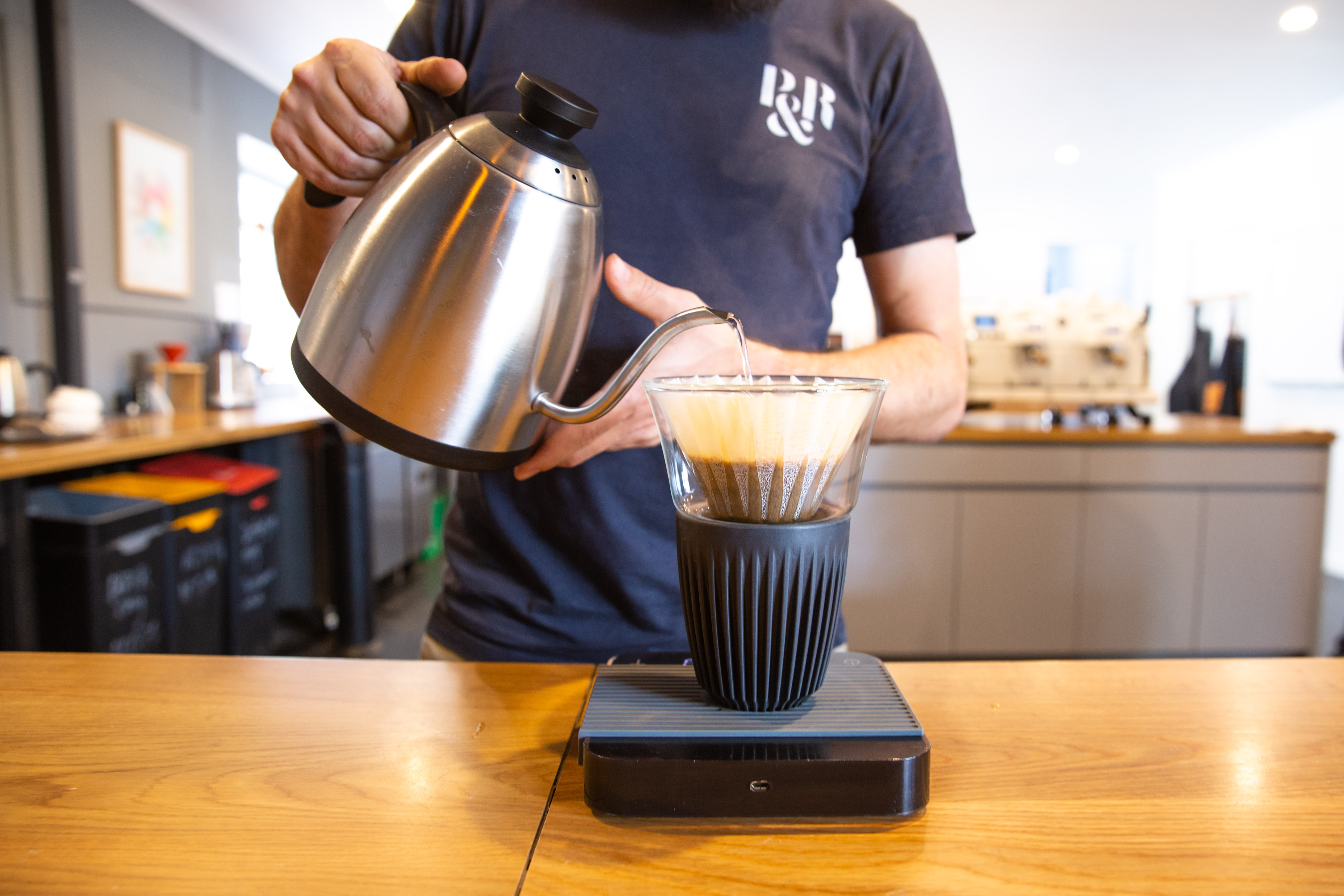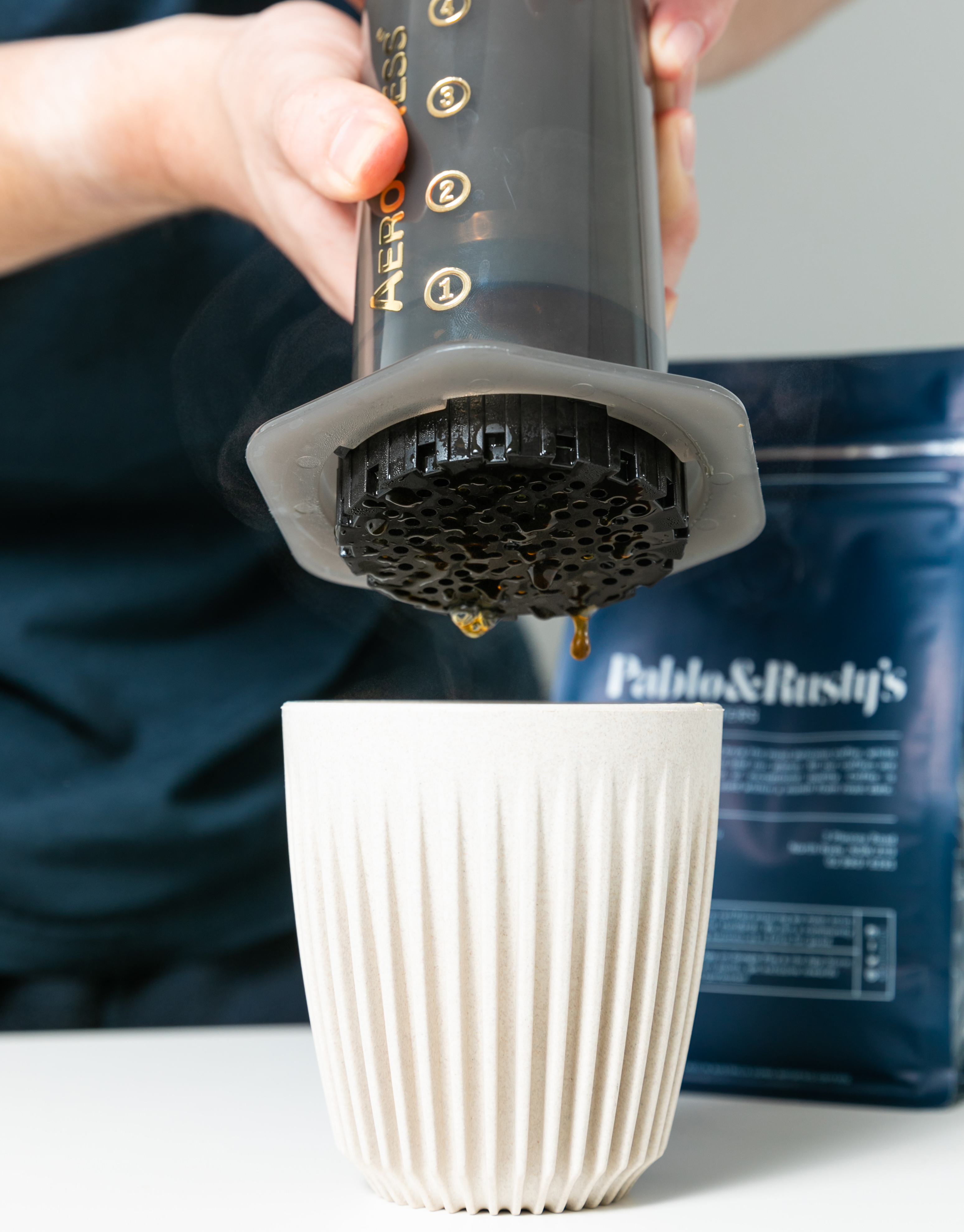Though often deriving from the same coffee bean, filter and espresso coffee offers a distinctly different "coffee" experience.
Roasting
Why is that? Several vital factors contribute, starting with roasting. Espresso beans are often roasted longer and darker than those for filter coffee to withstand the intense pressure of an espresso machine and short extraction time. This darker roast profile produces a richer, more robust flavour with chocolatey caramel notes. Filter coffee beans are typically lighter roasted, preserving the bean’s inherent flavour characteristics, resulting in a more nuanced and complex cup with brighter, fruitier flavours.
-v1716518296625.jpeg)
Brewing method
Next, it’s the brewing method. Filter coffee is typically made using drip or pour-over techniques like a V60 or immersion technique such as Aeropress or French press with hot water slowly passing through coarsely ground coffee beans. This process extracts the coffee's flavours over a longer period, usually around 3 to 5 minutes. In contrast, espresso is brewed quickly, with hot water forced through finely ground coffee under high pressure, usually in about 25 to 30 seconds. This rapid extraction results in a concentrated and different shot of coffee.

Grind size
Grind size also significantly impacts the taste. Filter coffee uses a coarser grind, which slows down the extraction process, leading to a more delicate, often lighter flavour profile with subtle and complex notes. On the other hand, espresso requires a very fine grind to allow for quick, pressurised brewing. This fine grind maximises the surface area for extraction, resulting in a bold, intense (and complex) flavour with a thicker body and crema on top. This is the reason that most milk and alt-dairy drinks, such as a flat white in Australia (and around the world), use espresso as their base.
-v1716775849929.jpg)
Extraction time
Finally, extraction time further differentiates the two. The extended brewing time for filter coffee allows for a fuller extraction of the coffee’s oils and aromatic compounds, contributing to a well-rounded and nuanced flavour. Espresso's short extraction time focuses on pulling out the most robust flavours, creating a more concentrated and intense cup.

Wrap it up
This was a short introduction on the differences between filter and espresso coffee. They can both be delicious and versatile. Ready to take the next steps and brew some espresso or filter coffees for yourself? Check out our website - we’ve got you covered.



